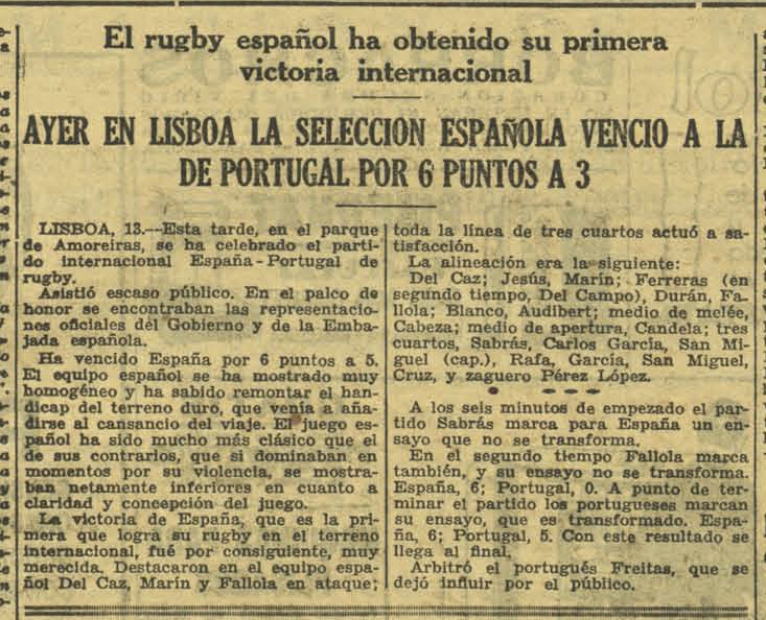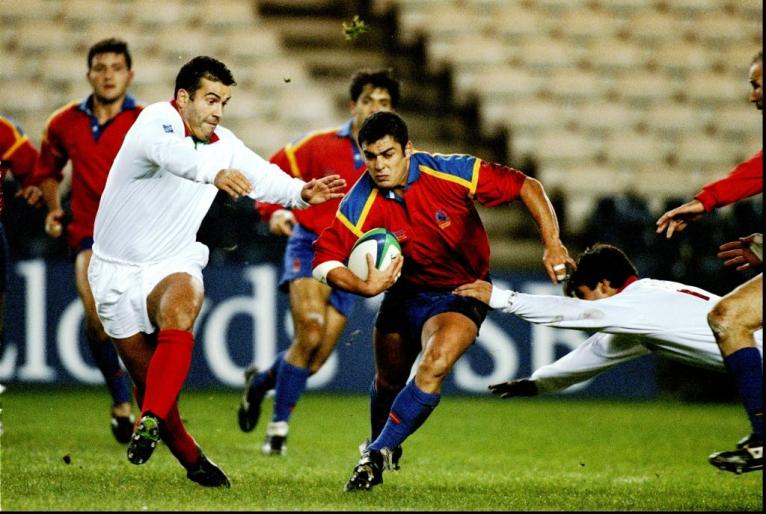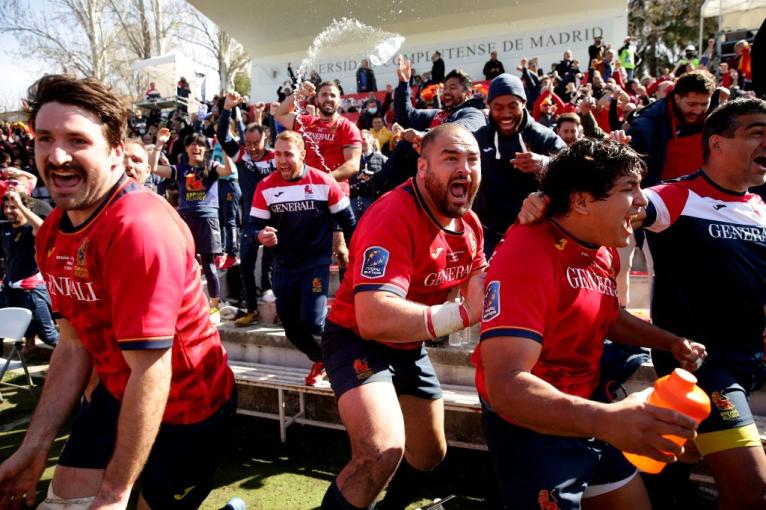Brazil vs Argentina; India vs Pakistan; All Blacks vs Springboks; USA vs USSR/Russia. Some of the biggest, wildest and most passionate sporting rivalries of all time, yet there’s another which transcends sport and life: Portugal vs Spain.
The two are more than mere neighbours. They are ‘brothers’, countries which share a common thread in their history. They have endured grievances and celebrated accomplishments. For those unfamiliar with this fierce and sometimes bonkers enmity, Portugal vs Spain can fill any stadium in any sport, bubbling emotions to a spectacular high. Rugby is no exception.
Portugal and Spain’s rivalry has touched every imaginable level, be it Test matches, club games (the Copa Ibérica predates most continental club competitions, first launched in 1965), Under-18s, U20s, women’s and sevens tournaments.
The latest instalment takes place on Sunday afternoon inside Lisbon’s historic Estadio do Restelo, as the old foes do battle for a place in the Rugby Europe Championship final.
Here are five famous tales from this intense and bone-crunching duel.
The Iberian rivals’ first dance – 1935
Portugal and Spain first met on 13th April 1935, with the Lobos hosting their neighbors in the Estádio Universitário de Lisboa (where Tomás Appleton’s CDUL plays). The Spanish would earn a hard-fought victory (6-5), but not without complaining the match official was targeting the Leones as reported by the Spanish press at the time.

It was also Spain’s maiden away Test victory and Portugal’s debut as a national side, making it a special occasion for the Iberian siblings.
Portugal break their duck – 1966
It took four attempts and more than thirty years for Portugal to defeat Spain, but it finally came to pass in 1966 when the Lobos snatched a 9-3 victory in Madrid. The Estadio Nacional Universidad Complutense hosted the FIRA Division 2 semi-final on a warm spring afternoon on the ‘Central’, Madrid’s most famous rugby pitch.
The Portuguese had an outstanding game, thanks to the efforts of the likes of flanker Carlos Nobre, a Lobos legend.
Portugal would go on to secure a promotion to the FIRA Division 1, leaving their rivals in the second tier, where they would remain until 1971.
The World Cup dream – 1998
The first Rugby World Cup was held in 1987, but it was another eleven years before Portugal and Spain came close to gracing the grandest stage of all. Only one could earn a ticket to the 1999 tournament.

The decider took place at Murrayfield on a cold December afternoon but on the pitch, the temperature rose to blood-boiling heights. Spain scored first, but a red card to flanker José Diaz seemed to tip the scales in Portugal’s favour. Despite playing with 14 men, Spain built a lead through Andrei Kovalenco’s penalties and a well-taken drop goal from centre Fernando Molina. Portugal fought back with a late try from Rohan Hoffman – who would later become a Super Rugby referee – but it was too little, too late.
Depleted Spain squeezed over the line sparking raucous celebrations. Their World Cup dream realised and their oldest rivals vanquished.
Portugal rise from the ashes – 2003/2004
After the 1999 competition, Spain could’ve become the new emerging juggernaut in European rugby, sharing top-dog status with Romania and Georgia, but Portugal had other ideas. When Tomaz Morais took over as head coach, the course of history dramatically changed forever.
The Lobos not only became a bruising competitor but evolved to the contender status for the European Nations crown, winning the title in 2004. On their glorious run – nine victories and just one defeat – the Portuguese successfully brought down Spain twice, a first since the 1970s.
Something special was brewing in the Portuguese camp, and that “something” would crystallise as 2007 World Cup qualification.
Luís Pissara, the former Portuguese international and assistant to Patrice Lagisquet, captained the Lobos in both games and reminds us how special it was.
“After failing to capitalise on Spain playing almost 60 minutes with 14 men in 1998, we started our climb to the top.
“I remember well those games against the Spanish – we were undoubtedly the better team. In the second game, we played with a new shirt, it had red, green and white stripes, and it would end-up being one-way traffic. That boosted our belief it was possible to become European champions, which happened one week later against Russia.”
A blockbuster game with a bitter aftertaste – 2022
A match which still sends shivers down Spanish spines. A win would seal World Cup qualification. A loss would shatter their quest. Seven-thousand baying fans inside the ‘Central’, awaiting triumph or desolation.

Like two prizefighters, the teams traded blows with spectacular tries and awe-inspiring rugby. After a five-try first half, Spain led 24-17. Manuel Ordás added three penalties with pinpoint goalkicking accuracy. Portugal roared back, Jose Madeira touching down in the dying minutes, and then laid siege to the Spanish line. A heroic, breathtaking home defence kept them out. Central became a sea of euphoria.
The day was spectacular; the aftermath, for Spain, horrific. For the second time, it transpired the Leones had fielded an ineligible player. They were deduced points, and to rub salt into their wounds, it was their bitter rivals who joined Romania at the big dance.
The present
The Iberian showdown may not have the publicity of its top-tier counterparts, but it carries immense significance for the Portuguese and Spanish rugby communities. These rich clashes stoke memories of old, and provide the opportunity for new heroes to announce themselves.
“That game is a classico for us,” says young Spanish player Gonzalo Vinuesa. “It’s about glory and pride against our dear neighbours. For me, playing against Portugal in Madrid tops everything.”
Any Portugal-Spain game promises a bombastic atmosphere. One can only imagine the backdrop if the ‘brothers’ lock horns at a Rugby World Cup. Sunday will be their 43rd match in 89 years, the feud sizzling on. As Spain captain Mario Pichardie puts it: “The rivalry and desire to win against Portugal goes beyond the ages, and it’s the one team I want to beat every time.”


Comments
Join free and tell us what you really think!
Sign up for free